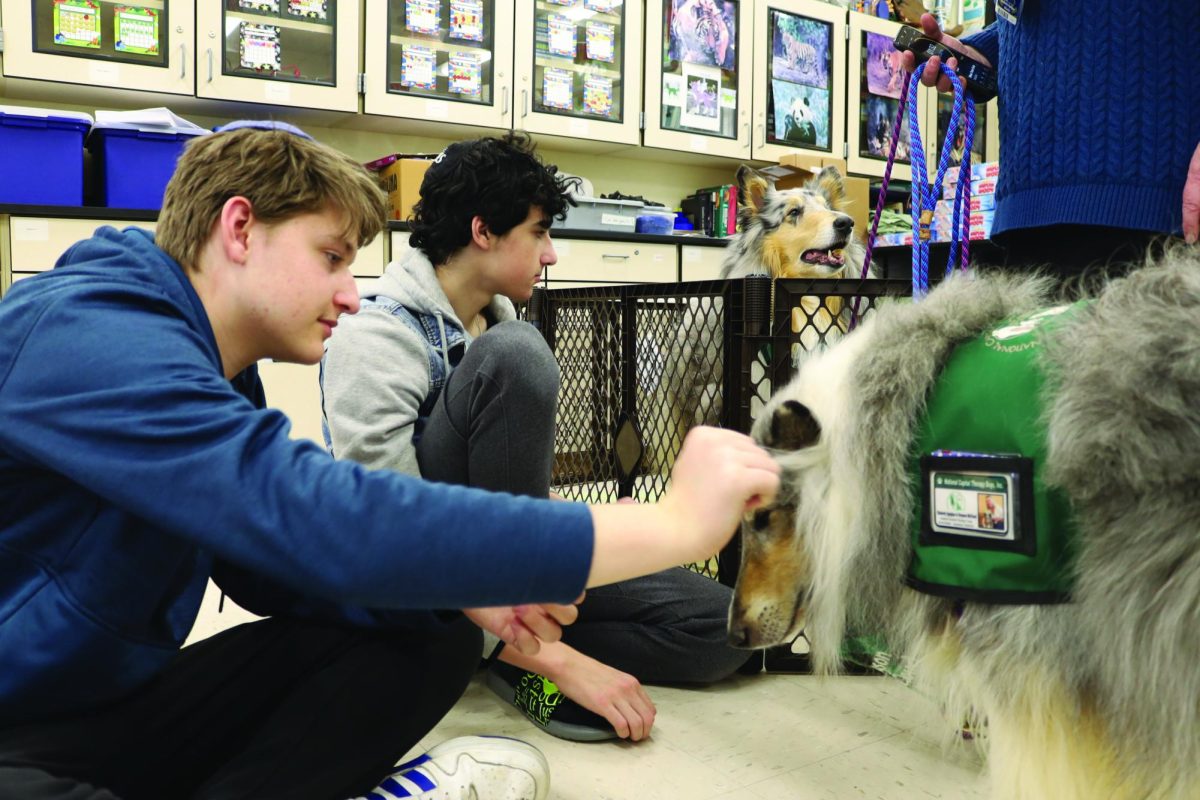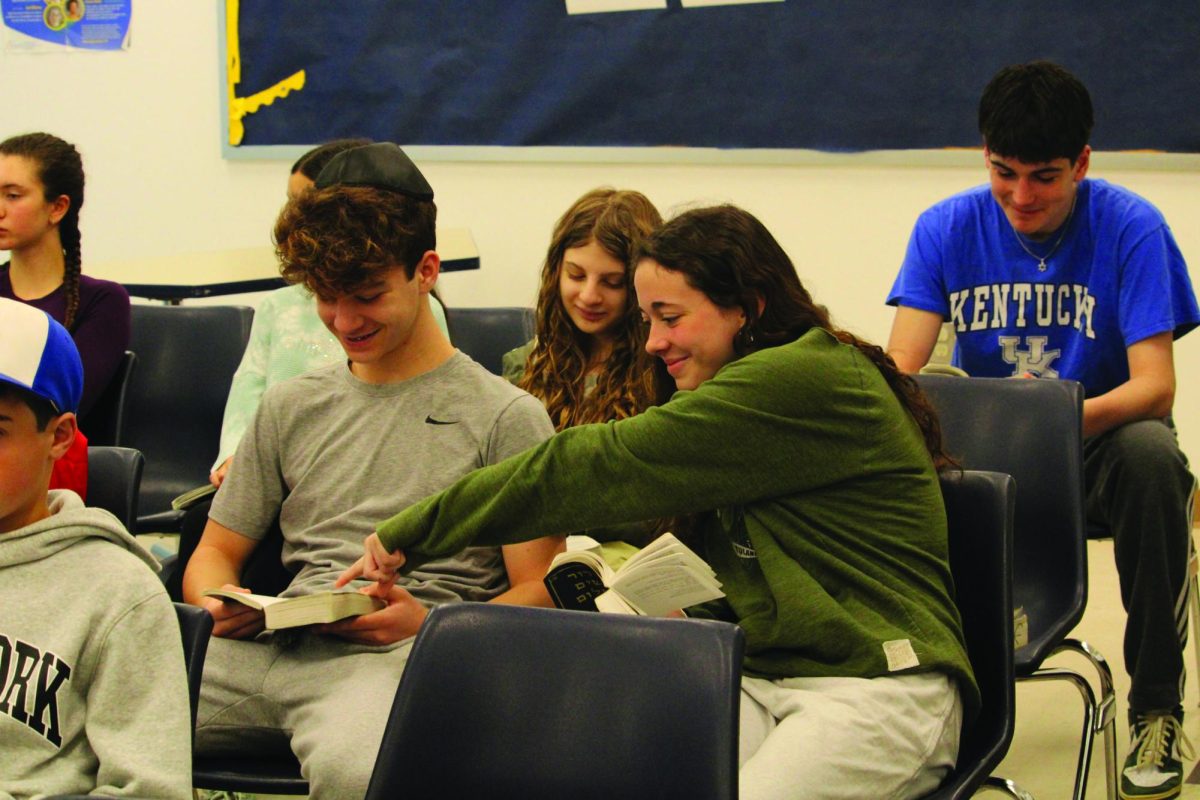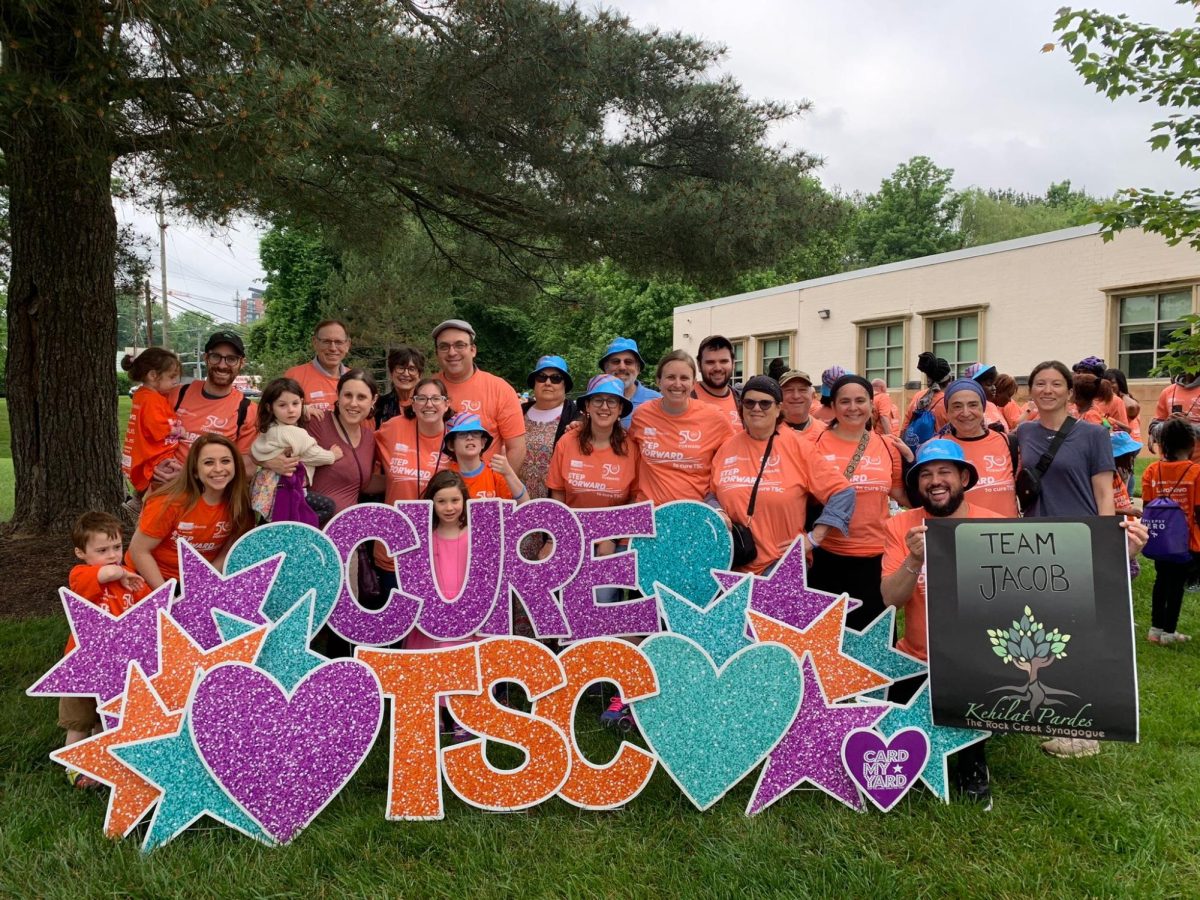Even after six years of volunteering with her collies at National Capital Therapy Dogs, science teacher Kimberly Agzigian never ceases to be amazed by the power of animals to connect with humans on a deep level. Agzigian has encountered many emotional moments as the owner of therapy dogs through witnessing how her dogs can heal those who are hurting.
Once or twice a month, Agzigian takes her dogs to various organizations that request their therapy. This ranges from senior centers to the Children’s Inn at the National Institute of Health, a program that focuses specifically on helping children with rare chronic conditions. The therapy dogs have also attended camps for children who lost parents and for burn victims.
“There was a little girl who had been nonverbal,” Agzigian said. “The sexual abuse was severe. The child had just come out of a therapy session with her mother, she was maybe four years old, just a tiny, tiny little girl. She took one look at Grayson [Agzigian’s dog], and she went over and threw her arms around his neck. He laid down, and she started whispering in his ear. She hadn’t spoken for months. The mother broke out in tears that her daughter was talking. What the child said to my dog, I’ll never know, but it was very emotional.”
Agzigian’s passion for owning and training therapy dogs was kick started when she watched her stepmother bring her collie into school to help teach developmentally challenged students. Even though therapy dogs were not common when she was growing up, Agzigian witnessed how dogs can bring others joy. Now, Agzigian brings her certified therapy dogs to comfort sexual abuse victims, senior citizens and children with rare diseases.
“It was really my childhood dog where I saw what a difference he made in the lives of the children who were cognitively impaired,” Agzigain said. “I used to go in on free days and work with the children as well with my stepmother and these children. Not all of them were verbal. They did not become verbal. They simply were not verbal. But they started to interact more, and they would smile, and they would be much more engaged in what was happening in the room. So I saw what a difference it could make, and that I like the idea of giving back to the community.”
Agzigian is a trainer for National Capital Therapy Dogs (NCTD), where she ensures dogs are suitable to provide aid, using training methods like positive reinforcement. Agzigian also works on familiarizing the dogs with all possible scenarios so that they are equipped to handle anything during a session. This includes working on cognition to respond to humans and being well trained to respond to the handler.
“We train therapy dogs and work with close to 300 schools, hospitals, hospice programs and retirement communities,” NCTD board member Kelly Citrin said.
From the way Agzigian talks about her dogs in the classroom, her students understand how much she cares about the therapy dogs and enjoys the work she does. She has also brought her dogs into CESJDS for various wellness events, so students have gotten to know her dogs’ unique abilities as therapy dogs.
“I would say [Agzigian’s therapy dogs] come up pretty often [in class], especially because we’re in genetics class, we’re talking about living things and animals,” junior Ella Arking said. “I think for her to also have that experience with those animals is really helpful.”
While there are many human resources to help those in need, Agzigian finds that dogs serve as non-judgemental companions that humans can feel more comfortable around. She believes that dogs give unconditional love to humans, making them feel more comfortable around dogs.
“They don’t judge you; they listen,” Agzigian said. “They want to be with you. And when you’re petting dogs, your blood pressure goes down and cortisol, the stress hormone, levels drop. So there are physiological and psychological benefits to therapy dogs.”
Paw-sitive impact
Eliana Wolf, News Editor
November 6, 2024
0
More to Discover
About the Contributor

Eliana Wolf, Editor-In-Chief
Eliana is beyond ecstatic to continue her work on The Lion’s Tale as Editor-In-Chief. She loves working with all of the fabulous staff members and particularly loves coming together on production nights. Aside from editing, writing and designing articles and spreads, one may find Eliana playing tennis, catching some balls on first base, cooking up some weird concoction in her kitchen or blasting Omer Adam in the car with her sisters. She can not wait for all the exciting moments on The Lion’s Tale this year.
Fun Fact: She has really cool pants.






